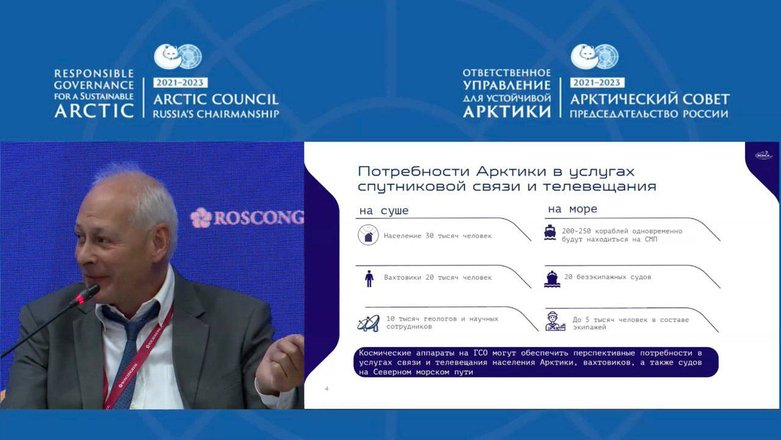Lack of alternatives for Arctic satellites: Alexey Volin tells at St. Petersburg International Economic Forum about the plans of RSCC to develop satellite telecommunications in the Arctic
The role of satellite communications in the region is difficult to overestimate: so far it is the only source of communication available over 4.5 million km² of the Arctic zone. Tens of thousands of people - residents of remote areas not covered by fiber optic technology, rotation workers employed in Arctic production facilities, researchers on expeditions in the Far North, ship crews on the Northern Sea Route - still have no alternative to satellites. Concurrently, they all need high quality communication with their relatives, television, Internet access, the ability to use government and other useful services.
And now the Russian Satellite Communications Company almost completely covers this need. The RSCC ensures the largest coverage in the region: 7 of the 13 satellites in the geostationary constellation of the RSCC (Express-AM7, Express-AM6, Express-80, Express-103, Express-AM5, Express-AMU3 and Express-AMU7) cover 99.2 percent of its territory. The company's satellites provide reception as far north as 79° northern latitude, north of which there is no residential population or physical ability to receive a signal from the geostationary orbit.
"RSCC is actively operating in the Northern Sea Route, organizing channels for meteorological stations, national parks and research centers. 27 ice-class ships and 12 icebreakers use the company's services on the NSR. Meanwhile, 409 ships are maintained within the maritime VSAT network of the RSCC. We take the lead in the organization of satellite communications on marine vessels, holding a share of more than a third of the entire market volume. And we are absolutely not afraid of the task of providing additional services to 200 ships that will cruise along the Northern Sea Route in the future”, said Alexey Volin.
The RSCC CEO also reported on a prospective project of using UAVs to deliver cargo to hard-to-reach and remote Arctic areas. "Without satellite communication, these vehicles will not be able to go further than 100 km. Experiments with routes up to 1 thousand kilometers have been already scheduled in Yugra", added Alexey Volin.
He also talked about another highly promising project being implemented by the company: crewless navigation. The RSCC is currently the only Russian operator with this kind of experience.
"Crewless navigation requires a lot more traffic. It has a specific feature, i.e., there you need a larger feedback channel from the ship to the on-shore control point than the channel from space to the ship, as you have to transmit data about the situation. According to our projections, in the next 5-7 years the number of crewless vessels in the Northern Sea Route may reach 20", summed up the CEO of the Russian Satellite Communications Company.
"The total amount of required capacity in the Arctic is about 5,000 MHz. This will make it possible to provide services to people permanently residing in this area, as well as rotation workers, river and marine vessels, and postal UAVs," added Alexey Volin.
